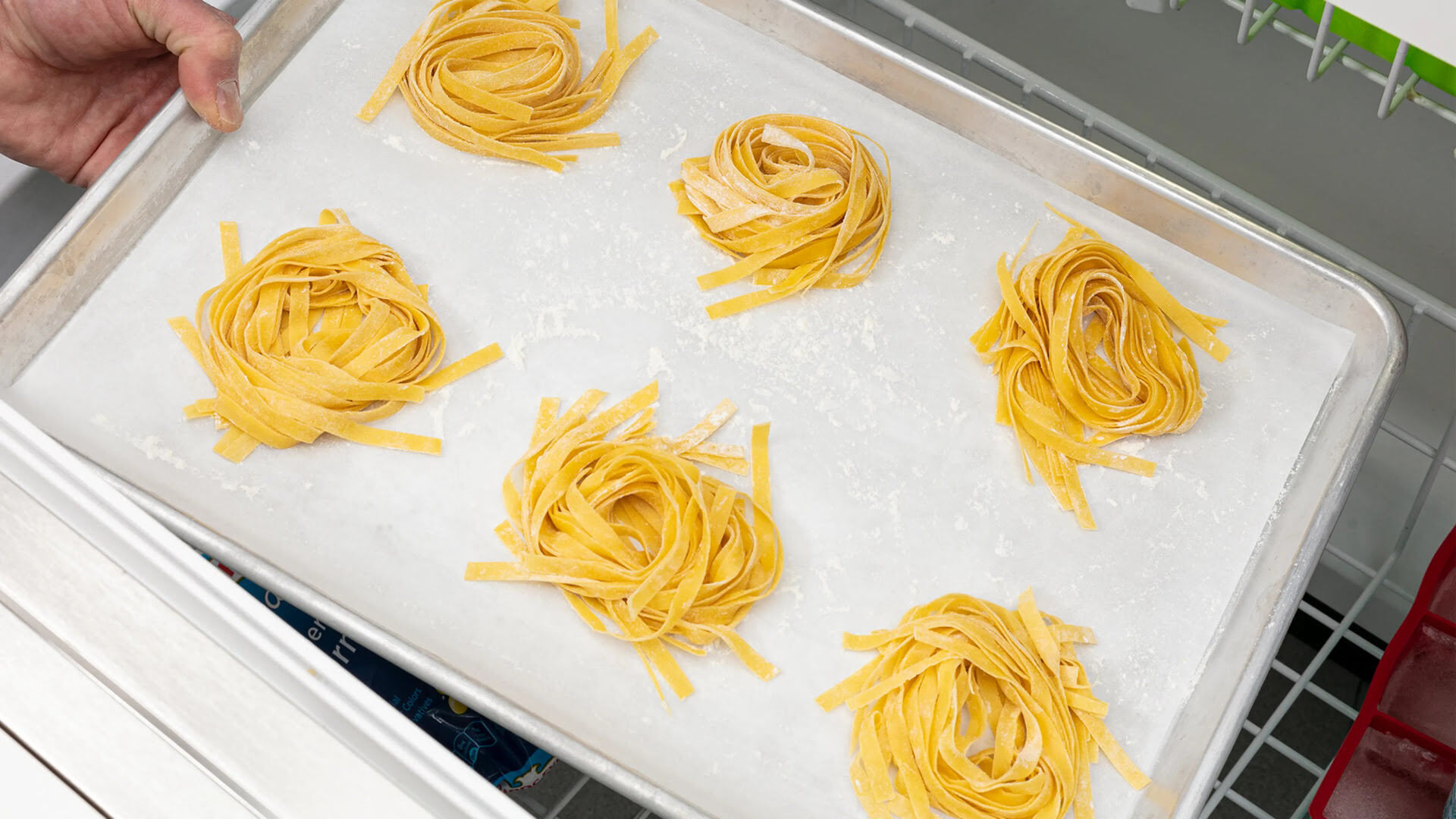

Articles
How To Store Fresh Pasta Overnight
Modified: January 6, 2024
Learn the essential tips on how to store fresh pasta overnight to keep it fresh and delicious. Check out our informative articles for expert advice and step-by-step instructions.
(Many of the links in this article redirect to a specific reviewed product. Your purchase of these products through affiliate links helps to generate commission for Storables.com, at no extra cost. Learn more)
Introduction
Fresh pasta is a delightful culinary creation that adds a touch of homemade goodness to any meal. Whether you’ve made or purchased fresh pasta, you may find yourself with excess leftovers that you want to store overnight. However, it’s important to store fresh pasta properly to maintain its freshness and flavor.
In this article, we will explore the various methods for storing fresh pasta overnight. We’ll discuss the importance of storing fresh pasta correctly and provide you with a step-by-step guide to refrigerating and freezing fresh pasta. Additionally, we’ll share some valuable tips and tricks to ensure your stored fresh pasta tastes just as fantastic as when it was first made.
Storing fresh pasta correctly not only preserves its taste and texture but also helps prevent spoilage and food waste. By following the proper storage techniques, you can enjoy your fresh pasta for an extended period and save it for future meals.
So, whether you’re planning to enjoy that last bit of homemade pasta tomorrow or want to make a big batch in advance for convenience, read on to discover the best methods for storing fresh pasta overnight.
Key Takeaways:
- Properly storing fresh pasta overnight preserves its taste, texture, and quality, allowing for convenient meal preparation, minimizing waste, and extending its shelf life.
- Refrigerating or freezing fresh pasta with proper techniques and additional tips ensures it remains delicious and ready to be enjoyed whenever desired.
Read more: How To Store Fresh Pasta In Fridge
Why You Should Store Fresh Pasta
Storing fresh pasta overnight is beneficial for several reasons. Here are a few key reasons why you should consider storing your fresh pasta:
- Convenience: Storing fresh pasta allows you to prepare meals in advance, saving you time and effort on busy days. By having pre-made pasta readily available, you can quickly whip up a delicious meal without the need for extensive preparation.
- Preserving Freshness: Fresh pasta typically has a shorter shelf life compared to dried pasta due to its higher moisture content. Therefore, proper storage is essential to preserve its freshness. By storing fresh pasta correctly, you can extend its lifespan and ensure it remains delicious when you’re ready to use it.
- Preventing Waste: Storing fresh pasta allows you to utilize any leftovers or excess portions effectively. Instead of throwing away unused pasta, you can save it for future meals, minimizing food waste and maximizing your ingredients.
By understanding the importance of storing fresh pasta, you can make the most out of your culinary creations and enjoy the convenience of having pre-made pasta on hand.
Tips for Storing Fresh Pasta Overnight
When it comes to storing fresh pasta overnight, following these tips will help maintain its flavor, texture, and quality:
- Keep it sealed: Whether you choose to refrigerate or freeze the fresh pasta, make sure to store it in an airtight container or tightly sealed plastic wrap. This prevents moisture loss and helps maintain the pasta’s freshness.
- Label and date: If you’re storing multiple batches of fresh pasta, it’s essential to label and date them. This practice will help you keep track of the pasta’s freshness and ensure you use the oldest ones first.
- Avoid stacking: If you’re using containers to store the pasta, avoid stacking them on top of each other. Stacking can cause the pasta to stick together and potentially affect its texture. Instead, store them in a single layer if possible.
- Separate portions: If you plan to store individual portions of fresh pasta, separate them before storing. This makes it easier to thaw or use only the desired amount without needing to defrost the entire batch.
- Freeze in small portions: If you’re freezing fresh pasta, consider portioning it out into smaller quantities. This way, you can thaw only what you need, minimizing waste and preventing potential texture issues when reheating the entire batch.
- Use high-quality containers: When choosing containers for storing fresh pasta, opt for high-quality materials that are freezer-safe and leak-proof. This ensures proper insulation and avoids any contamination or freezer burn.
- Store sauces separately: If your fresh pasta is already coated in sauce, it’s best to store them separately. This prevents the pasta from soaking up excess moisture and becoming mushy.
- Don’t store for too long: While fresh pasta can be stored overnight, it’s best to consume it within a day or two for optimal taste and texture. Extended storage can lead to a decline in quality.
By following these simple tips, you can ensure that your fresh pasta stays delicious and ready to be enjoyed whenever you’re ready to cook it.
Method 1: Refrigerating Fresh Pasta
Refrigerating fresh pasta is a common method for storing it overnight. Here is a step-by-step guide on how to refrigerate fresh pasta:
- After cooking the fresh pasta, let it cool down to room temperature. You can rinse it with cold water to stop the cooking process and prevent sticking.
- Drain any excess water from the pasta.
- Transfer the pasta to an airtight container or wrap it tightly in plastic wrap. Make sure the container or wrap seals well to prevent air and moisture from contacting the pasta.
- Label the container or wrap with the date to keep track of its freshness.
- Place the container or wrap in the refrigerator, ideally on one of the shelves rather than in the door. This will ensure a consistent temperature and minimize the chance of the pasta getting smashed or damaged.
- Refrigerate the fresh pasta for up to 24-48 hours.
- When you’re ready to use the refrigerated pasta, take it out of the refrigerator and let it sit at room temperature for a few minutes. This will remove the chill and allow the pasta to regain some of its natural texture.
- Reheat the pasta by briefly tossing it in a skillet or microwave it until warmed through. Be careful not to overcook the pasta as it has already been cooked once.
- Serve the refrigerated fresh pasta with your desired sauce or toppings.
Refrigerating fresh pasta is a convenient method that allows you to enjoy your homemade pasta the next day without sacrificing its flavor or texture. Just ensure you follow the proper storage techniques and reheating instructions to maintain its deliciousness.
Method 2: Freezing Fresh Pasta
If you want to store fresh pasta for longer than a couple of days, freezing is a great option. Freezing fresh pasta properly helps preserve its flavor and texture. Here’s a step-by-step guide on how to freeze fresh pasta:
- After cooking the fresh pasta, let it cool down completely. You can rinse it with cold water to stop the cooking process and prevent sticking.
- Drain any excess water from the pasta.
- Divide the pasta into individual portions or desired serving sizes. This will make it easier to thaw and use only the amount you need.
- Place each portion of the fresh pasta on a baking sheet lined with parchment paper or a silicone mat. Make sure the portions are not touching each other to prevent them from sticking together.
- Transfer the baking sheet with the pasta portions to the freezer and let them freeze for about 1-2 hours. This process is known as flash freezing and helps prevent clumping.
- Once the pasta portions are partially frozen, remove them from the baking sheet and transfer them to airtight freezer bags or containers. Squeeze out any excess air and seal them tightly.
- Label the freezer bags or containers with the date and contents.
- Place the bags or containers in the freezer, ideally in a single layer, until completely frozen.
- Frozen fresh pasta can be stored in the freezer for up to 2-3 months.
- To thaw the frozen fresh pasta, remove the desired portion from the freezer bag or container and transfer it to the refrigerator. Let it thaw overnight or for at least a few hours.
- Once thawed, you can cook the fresh pasta as you would normally, either by boiling it in salted water or incorporating it into your favorite pasta dish.
- Enjoy your frozen fresh pasta with your favorite sauce or toppings.
Freezing fresh pasta is a convenient way to extend its shelf life and have it readily available for future meals. Just make sure to follow the proper storage and thawing instructions to maintain its taste and texture.
After shaping the fresh pasta, lightly dust it with flour to prevent sticking, then place it on a baking sheet and cover with a clean kitchen towel. Store in the refrigerator for up to 24 hours before cooking.
Read more: How To Store Fresh Mozzarella Overnight
Steps for Refrigerating Fresh Pasta
If you’re looking to store fresh pasta in the refrigerator, follow these simple steps:
- After cooking the fresh pasta, allow it to cool down to room temperature. You can rinse it briefly with cold water to halt the cooking process and prevent sticking.
- Drain any excess water from the pasta to ensure it retains its desired texture.
- Transfer the cooked pasta to an airtight container or wrap it tightly in plastic wrap. Ensure that the container or wrap seals securely to prevent air and moisture from reaching the pasta.
- Label the container or wrap with the date to easily track its freshness.
- Place the container or wrapped pasta in the refrigerator, preferably on one of the shelves rather than the door. This will provide a consistent temperature and reduce the risk of the pasta being crushed or damaged.
- Refrigerate the fresh pasta for up to 24 to 48 hours, enjoying it within that timeframe for optimal flavor and quality.
- Prior to using the refrigerated pasta, allow it to sit at room temperature for a few minutes to remove the chill and bring it closer to its original texture.
- To reheat the refrigerated pasta, briefly toss it in a skillet with some olive oil or heat it in the microwave until it is warmed through. Avoid overcooking the pasta, as it has already been cooked once.
- Serve the freshly reheated pasta with your choice of sauce and toppings, ensuring every bite is as delightful as the day it was made.
By following these steps, you can correctly refrigerate fresh pasta and enjoy it at a later time without compromising its taste or texture.
Steps for Freezing Fresh Pasta
If you want to freeze fresh pasta for future use, follow these steps:
- Cook the fresh pasta according to the instructions, then allow it to cool completely. You can rinse it with cold water to stop the cooking process and prevent sticking.
- Drain any excess water from the pasta to maintain its desired consistency.
- Divide the fresh pasta into individual portions or desired serving sizes.
- Place each portion of the fresh pasta on a baking sheet lined with parchment paper or a silicone mat. Make sure they are not touching to prevent them from sticking together.
- Put the baking sheet with the pasta portions in the freezer and leave them to partially freeze for about 1-2 hours. This flash freezing process helps prevent clumping.
- Once the pasta portions are partially frozen, remove them from the baking sheet and transfer them to airtight freezer bags or containers.
- Squeeze out any excess air from the freezer bags, or if using containers, ensure they are tightly sealed to avoid freezer burn.
- Label the freezer bags or containers with the date and contents for easy identification.
- Place the bags or containers in the freezer in a single layer until the fresh pasta is completely frozen.
- Frozen fresh pasta can be stored in the freezer for 2-3 months.
- To thaw the frozen fresh pasta, remove the desired portion from the freezer bag or container and transfer it to the refrigerator. Let it thaw overnight or for a few hours.
- Once thawed, cook the fresh pasta as you normally would, either boiling it in salted water or incorporating it into your favorite pasta dish.
- Enjoy the frozen fresh pasta with your choice of sauce or toppings, savoring the taste of homemade pasta whenever you desire.
By following these steps, you can properly freeze fresh pasta and enjoy it at a later time without compromising its flavor or texture.
How to Properly Thaw Frozen Fresh Pasta
If you have frozen fresh pasta and want to bring it back to its original state, follow these steps for proper thawing:
- Remove the desired portion of frozen fresh pasta from the freezer. Keep the remaining pasta stored in the freezer.
- Transfer the portion of frozen pasta to a plate or bowl.
- Place the plate or bowl in the refrigerator to thaw overnight or for a few hours. Slow thawing in the refrigerator helps maintain the quality of the pasta.
- Allow the pasta to thaw completely until it is no longer frozen. The thawing time may vary depending on the size and thickness of the pasta.
- Once the pasta is completely thawed, it is ready to be cooked or reheated. Proceed with your preferred cooking method, such as boiling it in salted water or incorporating it into your favorite pasta dish.
- Cook or reheat the thawed pasta until it is heated through. Be mindful not to overcook the pasta as it is already cooked once.
- Once cooked or reheated, serve the thawed fresh pasta with your desired sauce and toppings.
Thawing frozen fresh pasta properly in the refrigerator ensures that it retains its texture and flavor. Avoid thawing the pasta at room temperature or using methods like microwave defrosting, as they can lead to uneven thawing or affect the pasta’s quality.
By following these steps, you can thaw your frozen fresh pasta effectively and enjoy it as if it were freshly made.
Additional Tips for Storing Fresh Pasta Overnight
To ensure the best results when storing fresh pasta overnight, consider these additional tips:
- Use high-quality ingredients: When making fresh pasta, use high-quality flour, eggs, and any additional ingredients like herbs or spices. Quality ingredients contribute to the overall taste and texture of the pasta, even after it has been stored.
- Don’t overcook the pasta: When cooking fresh pasta initially before storing, make sure to cook it al dente, which means it should have a slight bite to it. This way, when you reheat or cook the stored pasta, it won’t become mushy or overcooked.
- Sauce adjustment: If you’re storing fresh pasta with sauce, consider adjusting the thickness of the sauce slightly. Thicker sauces tend to hold up better when reheated or stored, while thinner sauces may become too watery. Alternatively, you can store the pasta and sauce separately.
- Consider portion control: If you frequently have excess fresh pasta, portion it out before storing. This way, you can thaw and use only the amount you need for each meal, reducing food waste and ensuring the best taste and freshness.
- Experiment with different shapes: If you know you will be storing fresh pasta overnight, try using different pasta shapes that hold up well after being refrigerated or frozen. Examples include rigatoni, penne, and farfalle, which retain their shape and texture even after storage.
- Label and date everything: Properly labeling the containers or freezer bags with the date of storage ensures that you can keep track of how long the pasta has been stored. Use a permanent marker or labels to avoid any confusion.
- Regularly clean your refrigerator or freezer: Maintain a clean fridge or freezer to prevent any odors from transferring to the stored fresh pasta. Regular cleaning helps ensure the stored pasta retains its original flavors and doesn’t pick up any unwanted smells.
- Follow safety guidelines: Always follow proper food safety guidelines when storing fresh pasta overnight. Keep the pasta refrigerated or frozen at the appropriate temperature to prevent the growth of bacteria or other harmful microorganisms.
By following these additional tips, you can store fresh pasta overnight with ease, ensuring its taste, texture, and quality are maintained until you’re ready to enjoy it.
Read more: How To Store Freshly Baked Bread Overnight
Conclusion
Storing fresh pasta overnight can be a convenient and practical way to enjoy its deliciousness in the days to come. Whether you choose to refrigerate or freeze your fresh pasta, following the proper techniques ensures that it retains its flavor, texture, and quality.
Refrigerating fresh pasta allows you to keep it for up to 24-48 hours, making it an excellent option for short-term storage. By following the steps of cooling, packaging, and labeling, you can have perfectly refrigerated pasta ready to be reheated and enjoyed.
On the other hand, freezing fresh pasta extends its shelf life for up to 2-3 months. Flash freezing individual portions, properly storing them in airtight containers or freezer bags, and thawing them in the refrigerator ensures that your frozen pasta retains its original taste and texture.
Remember to follow additional tips such as using high-quality ingredients, avoiding overcooking the pasta, and portioning it out for better control and reduced waste. Labelling and regularly cleaning your storage containers help keep track of freshness and prevent any unwanted odors from affecting the pasta.
By understanding the various methods for storing fresh pasta overnight and implementing the associated tips, you can enjoy the convenience of having homemade pasta on hand whenever you desire. Whether you’re seeking a quick weeknight meal or planning ahead for special occasions, stored fresh pasta allows you to create flavorful and satisfying dishes with ease.
So, embrace the opportunity to store fresh pasta properly and take advantage of this versatile ingredient that adds a touch of homemade goodness to every meal.
Frequently Asked Questions about How To Store Fresh Pasta Overnight
Was this page helpful?
At Storables.com, we guarantee accurate and reliable information. Our content, validated by Expert Board Contributors, is crafted following stringent Editorial Policies. We're committed to providing you with well-researched, expert-backed insights for all your informational needs.
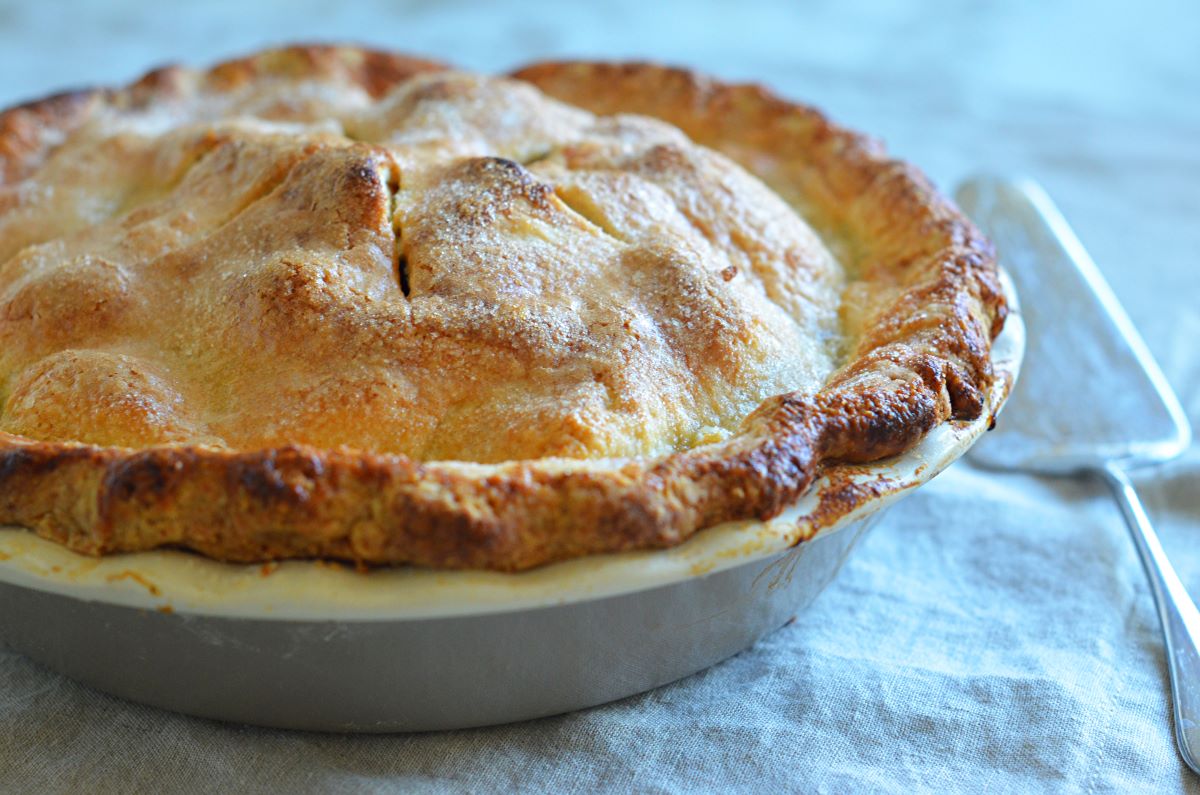
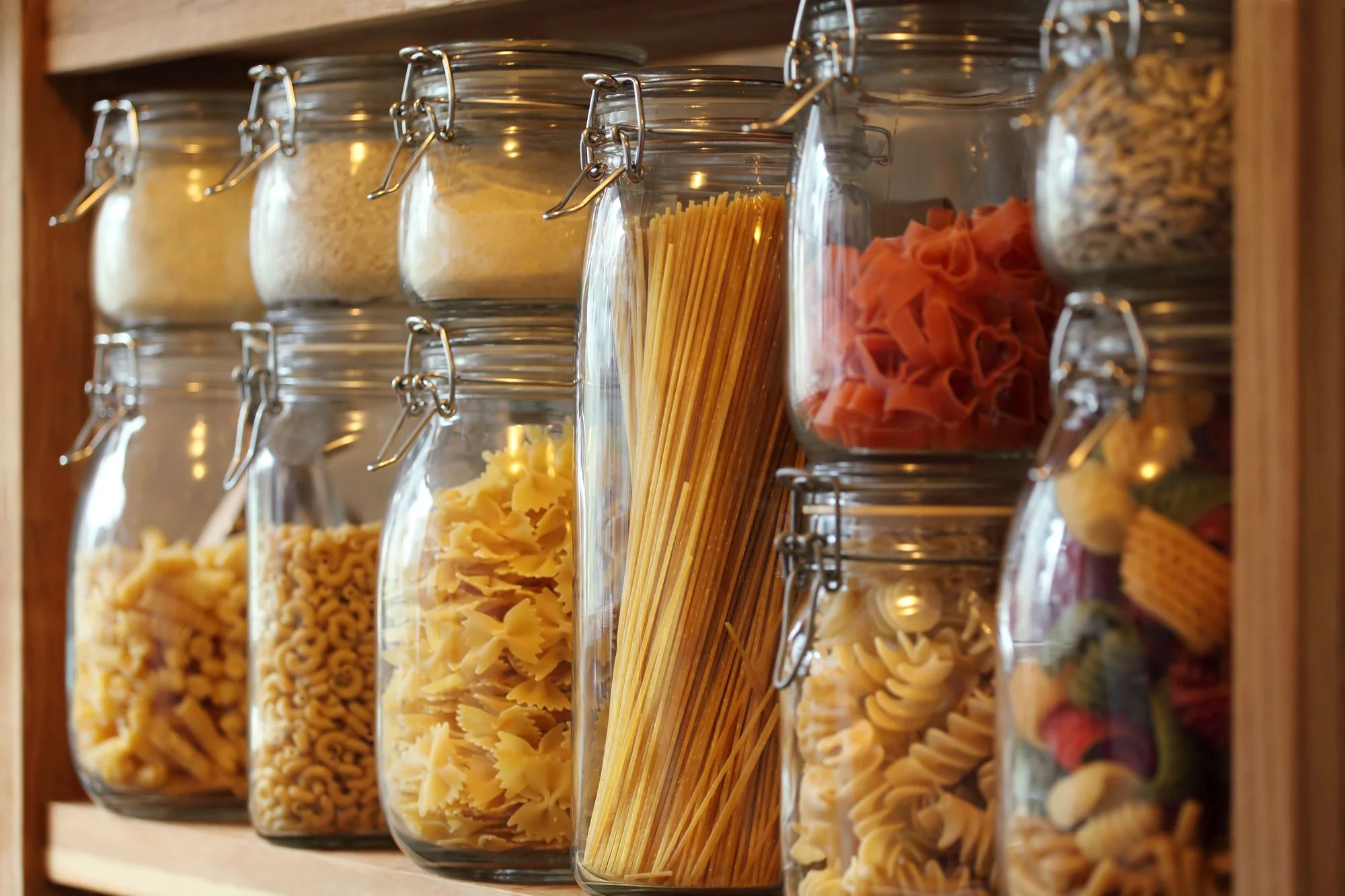
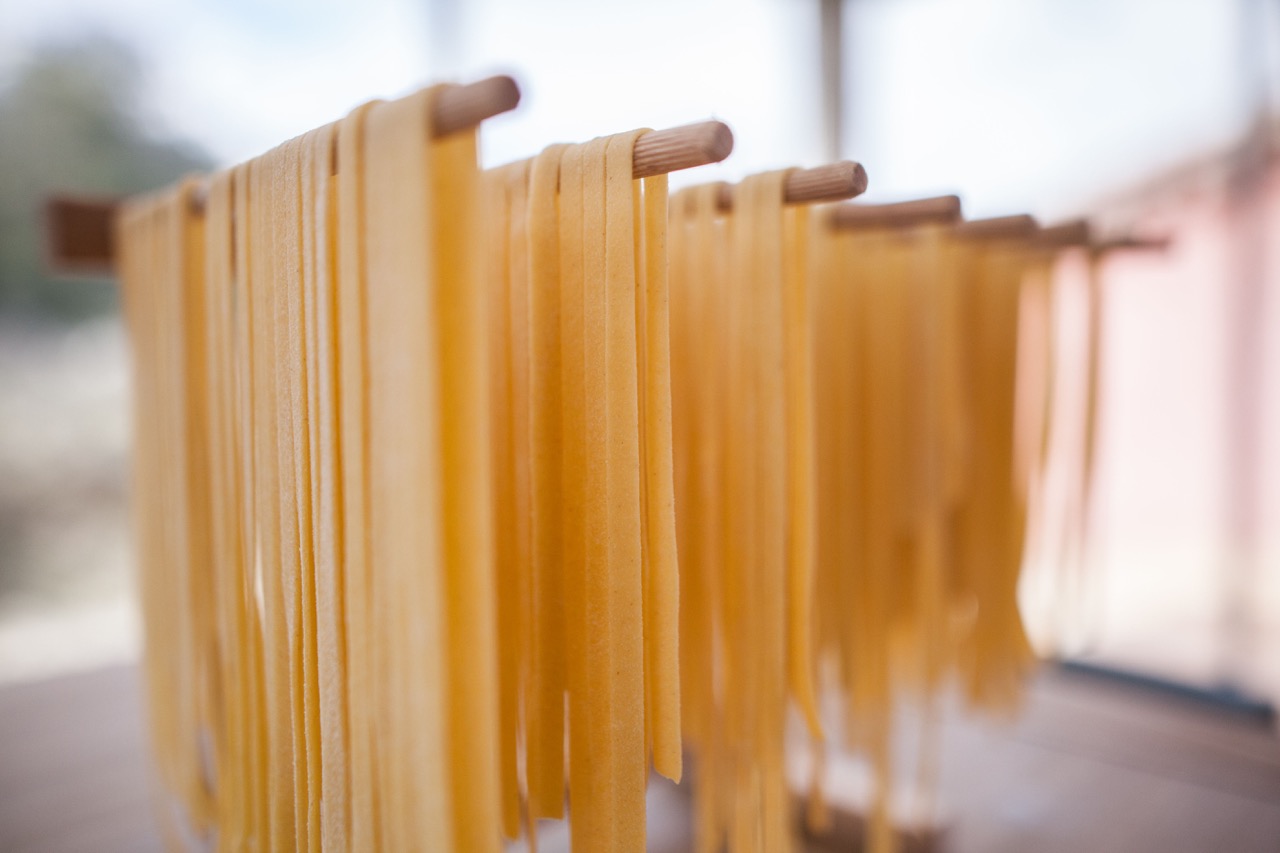
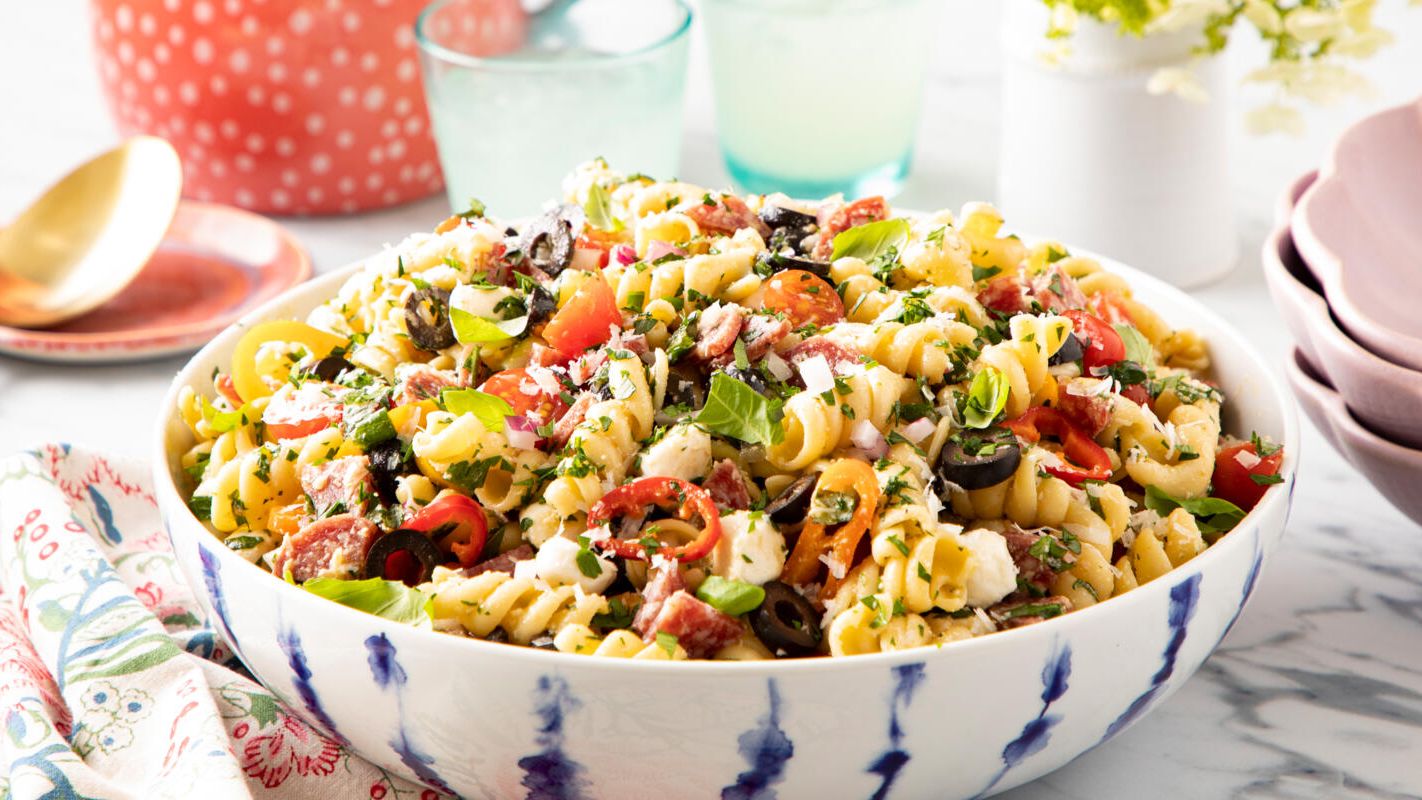
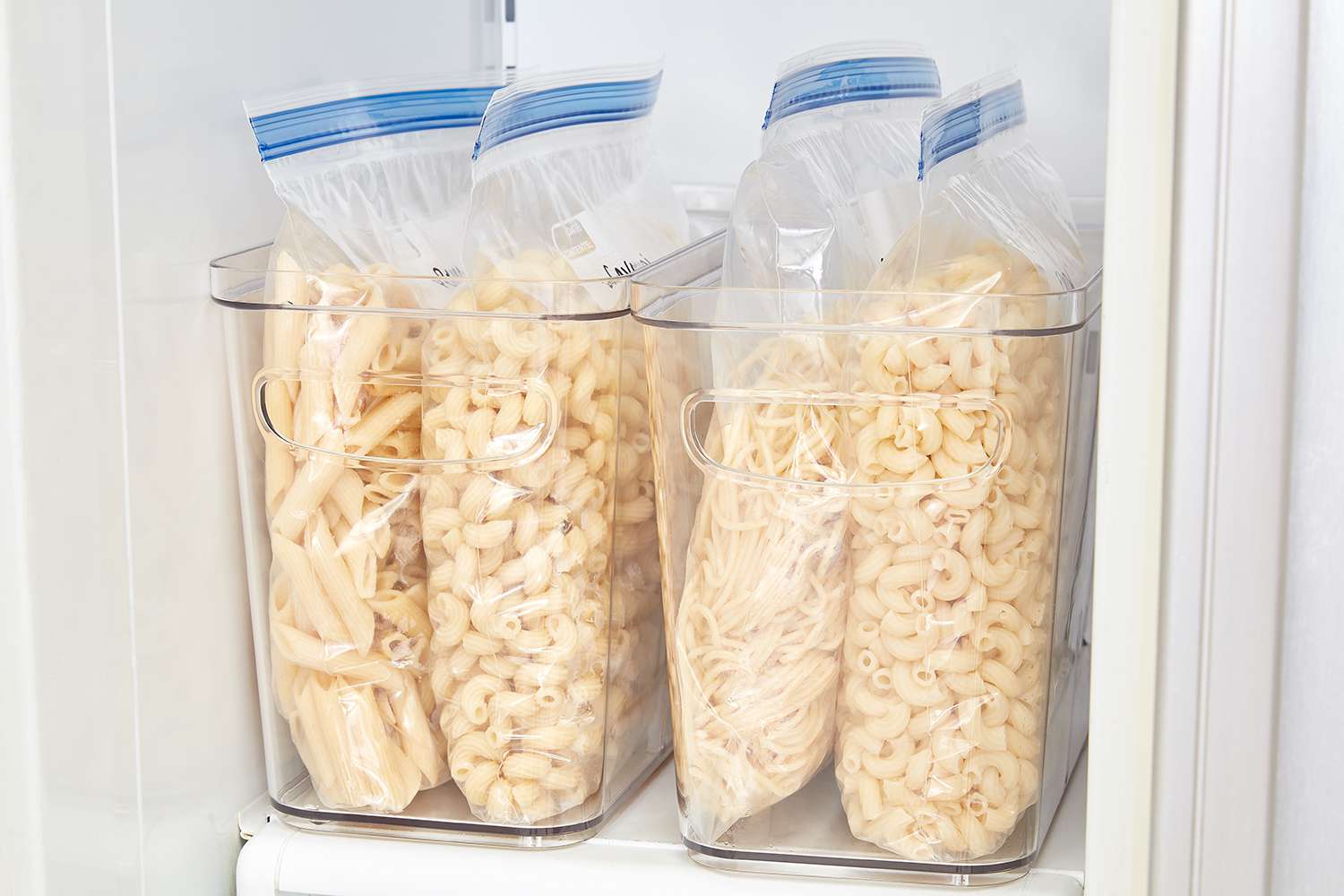
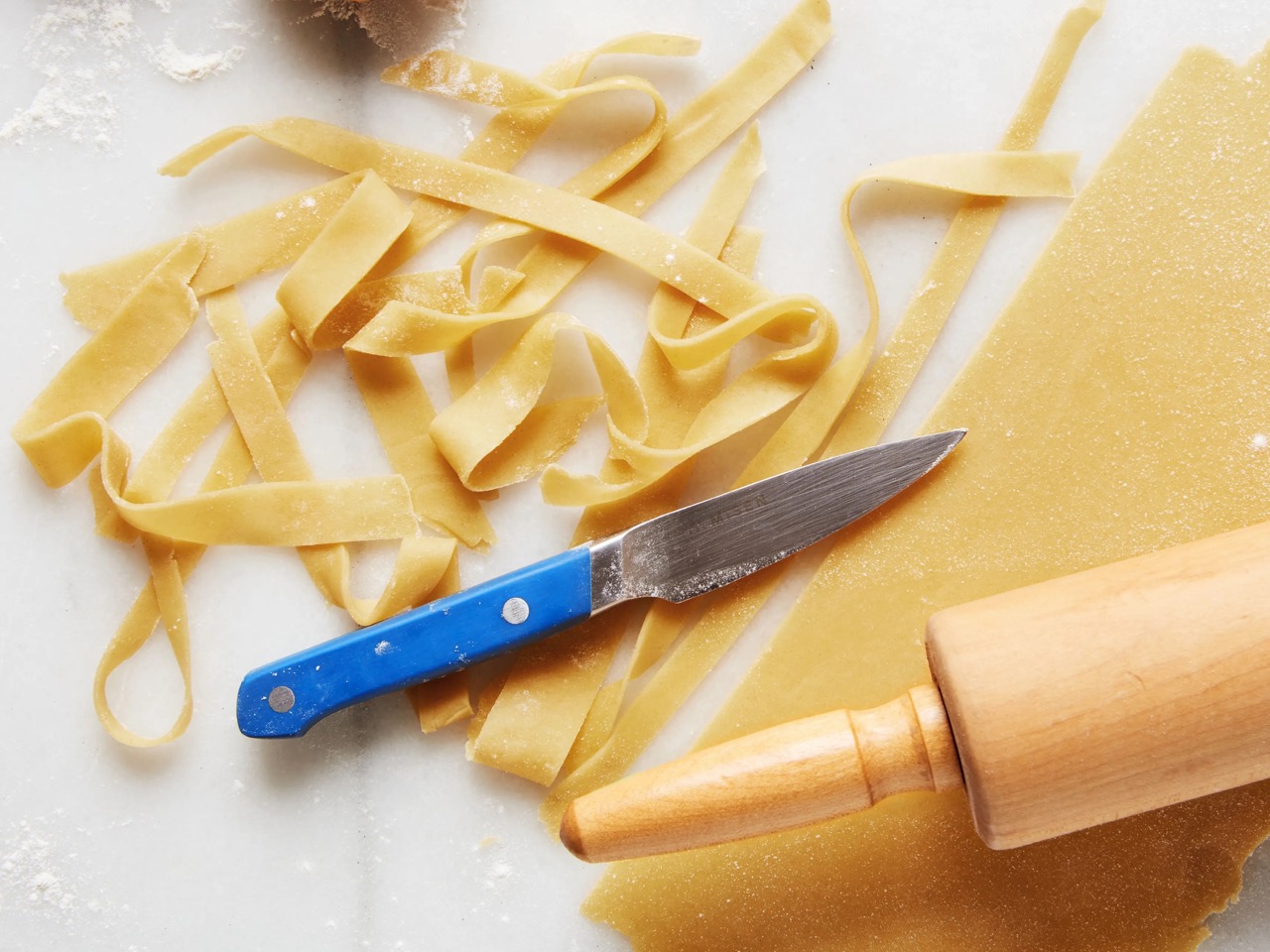
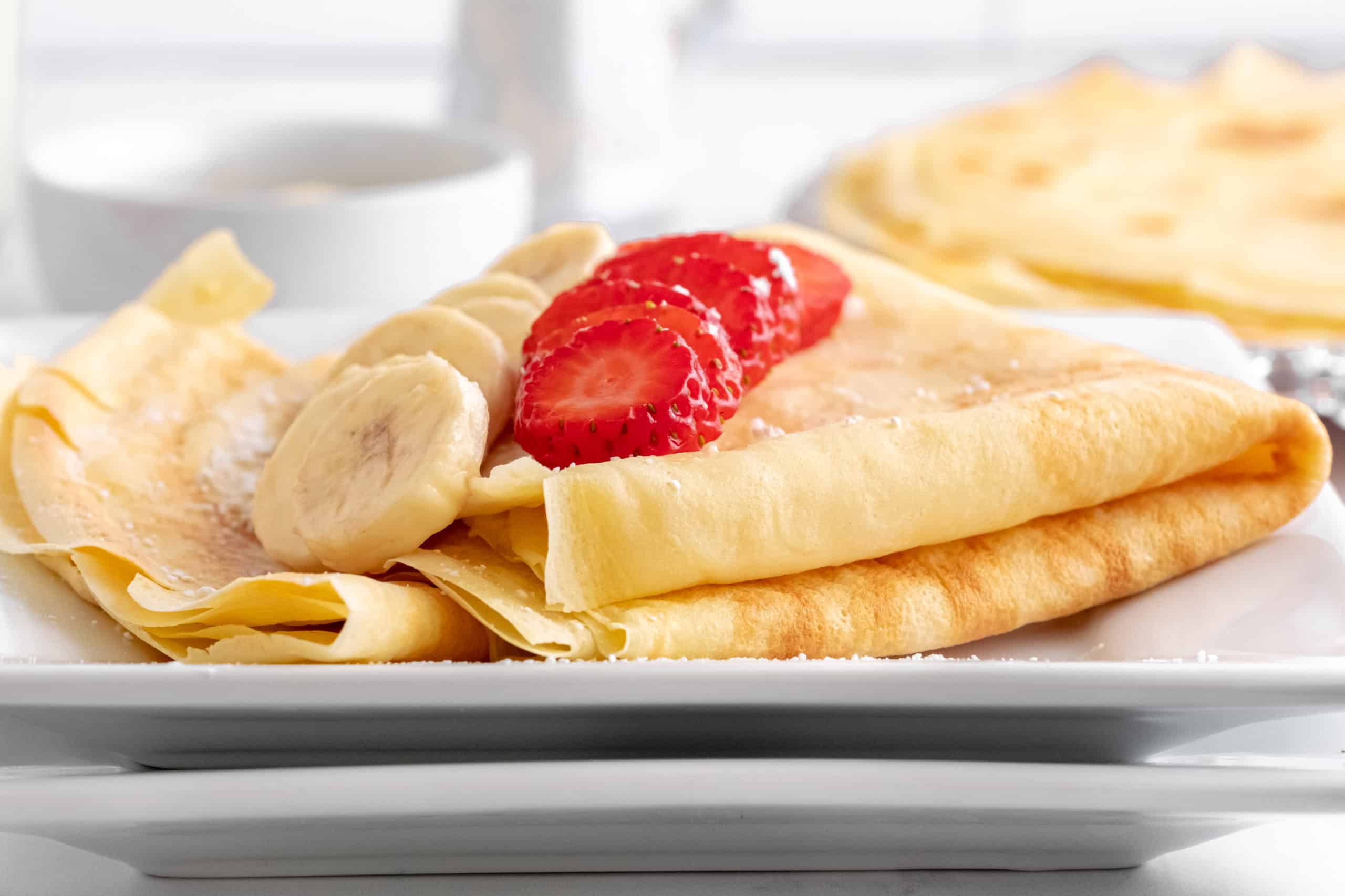

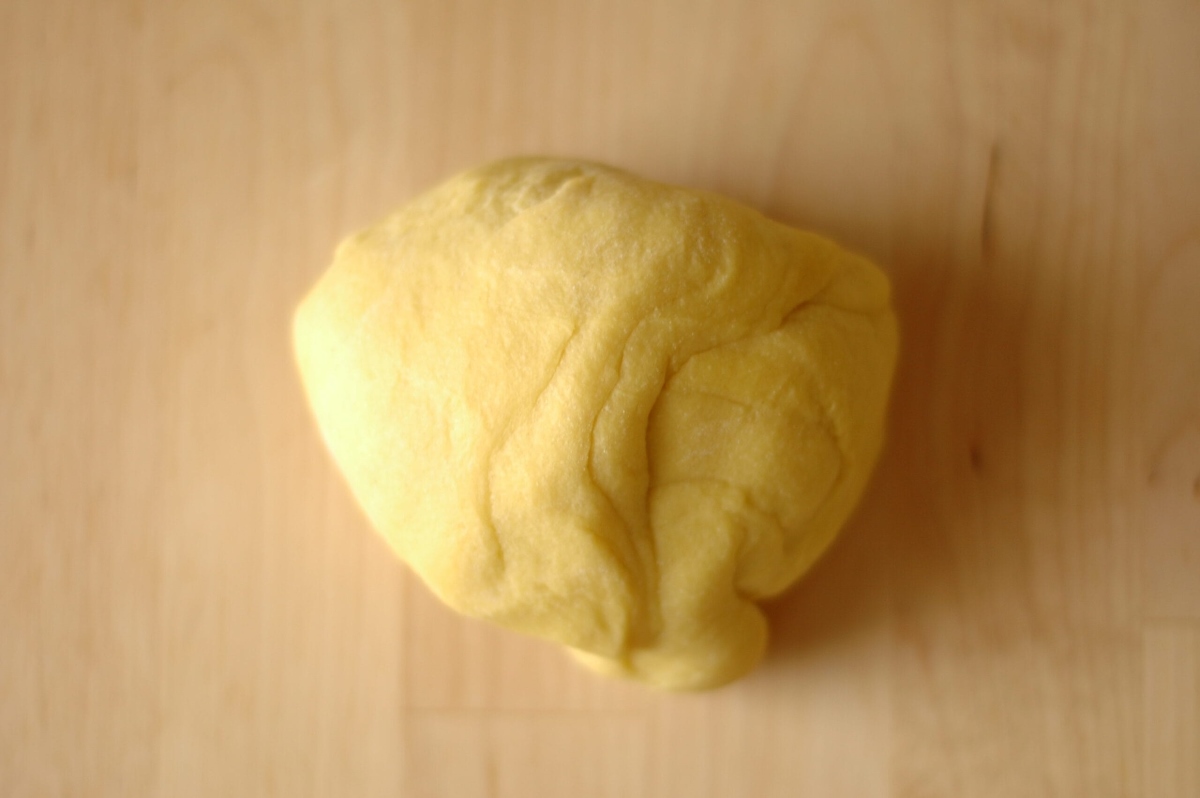
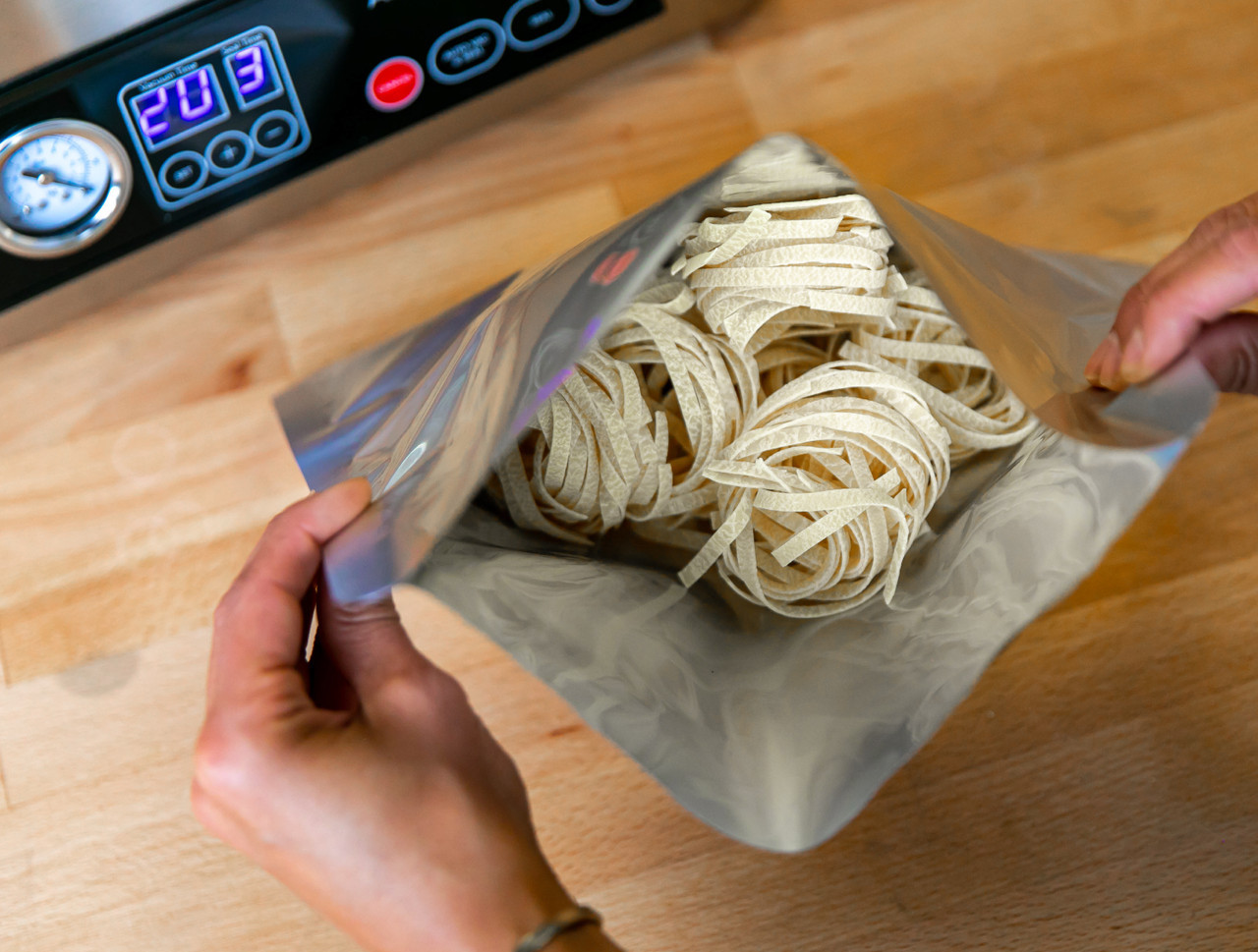
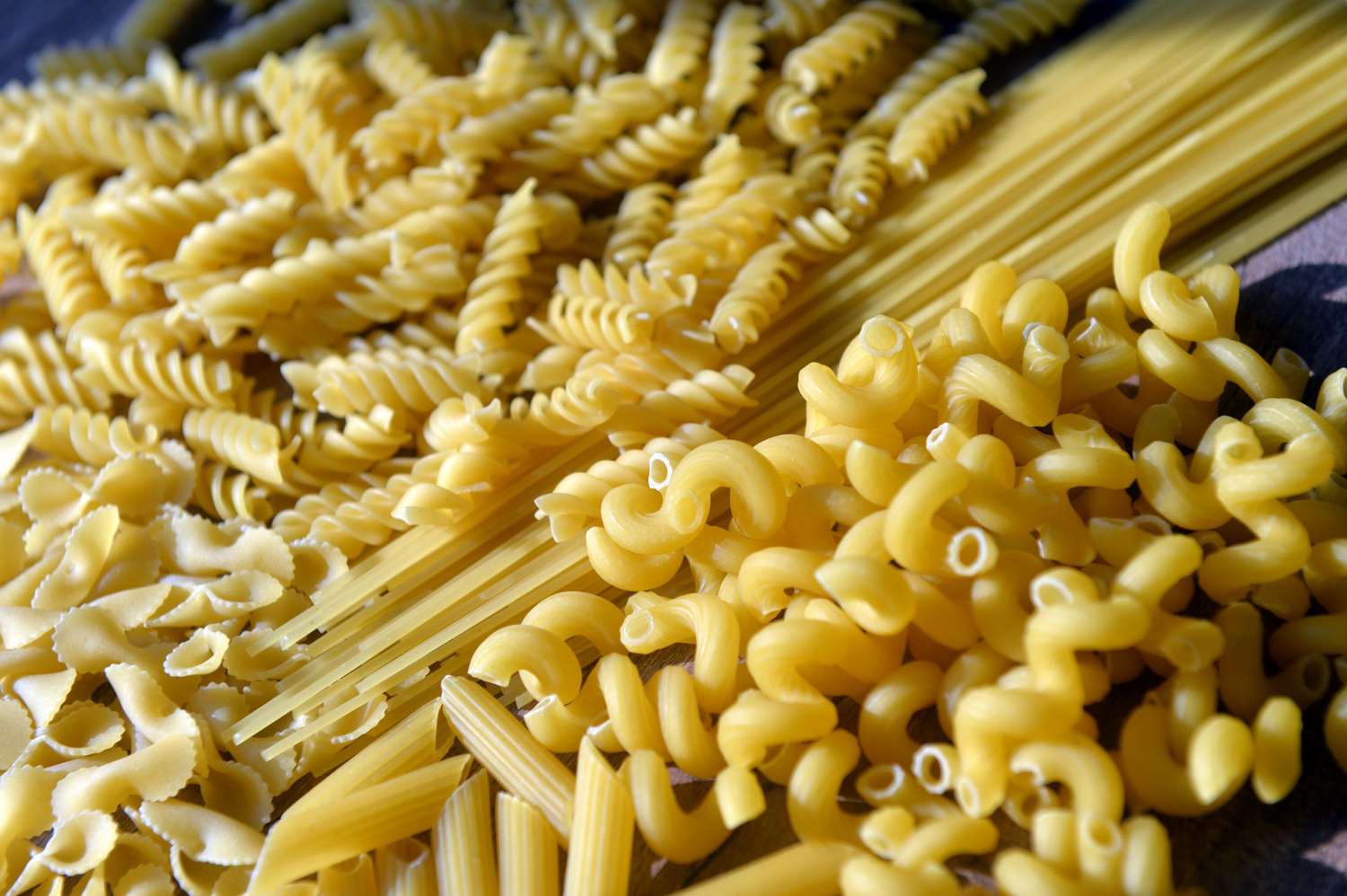
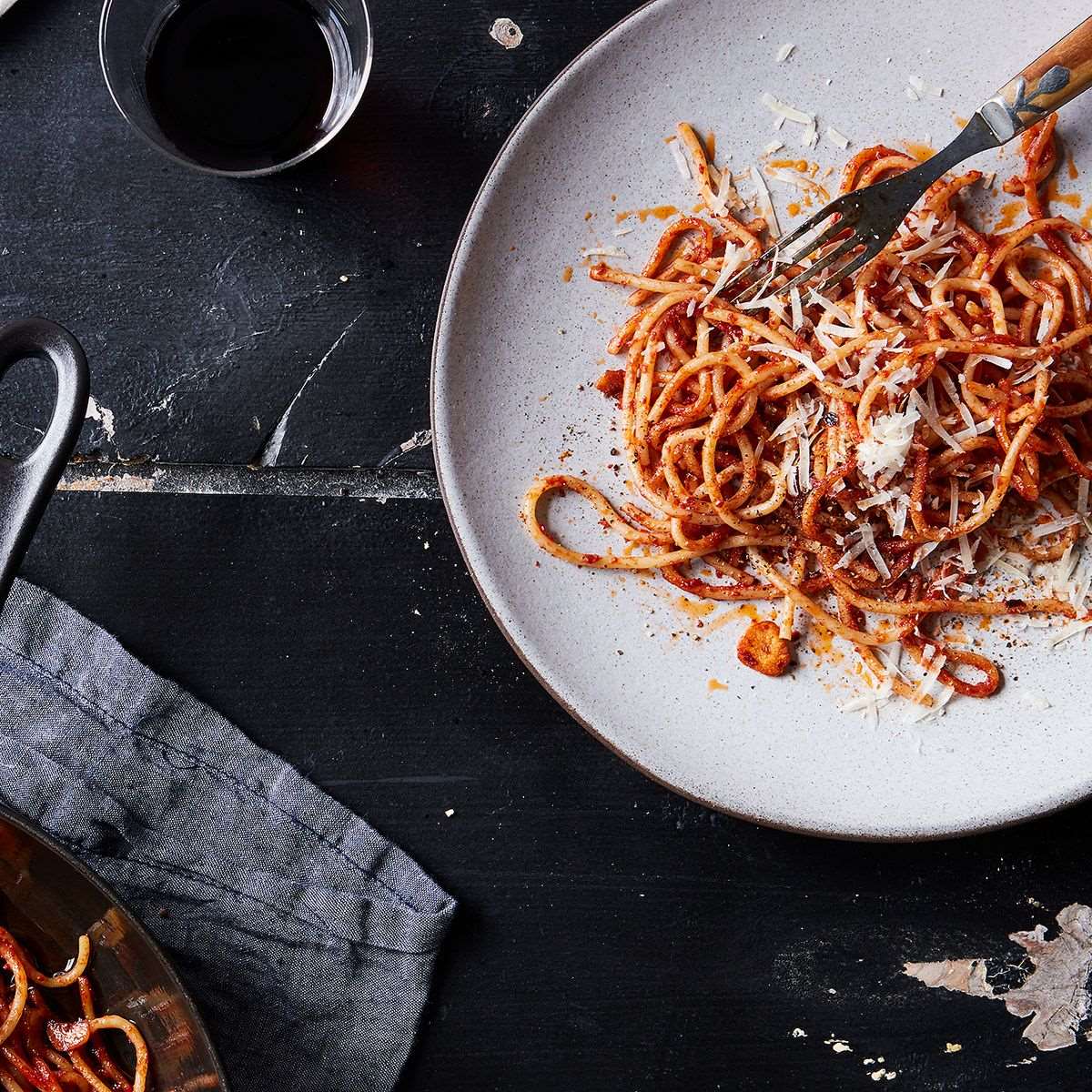
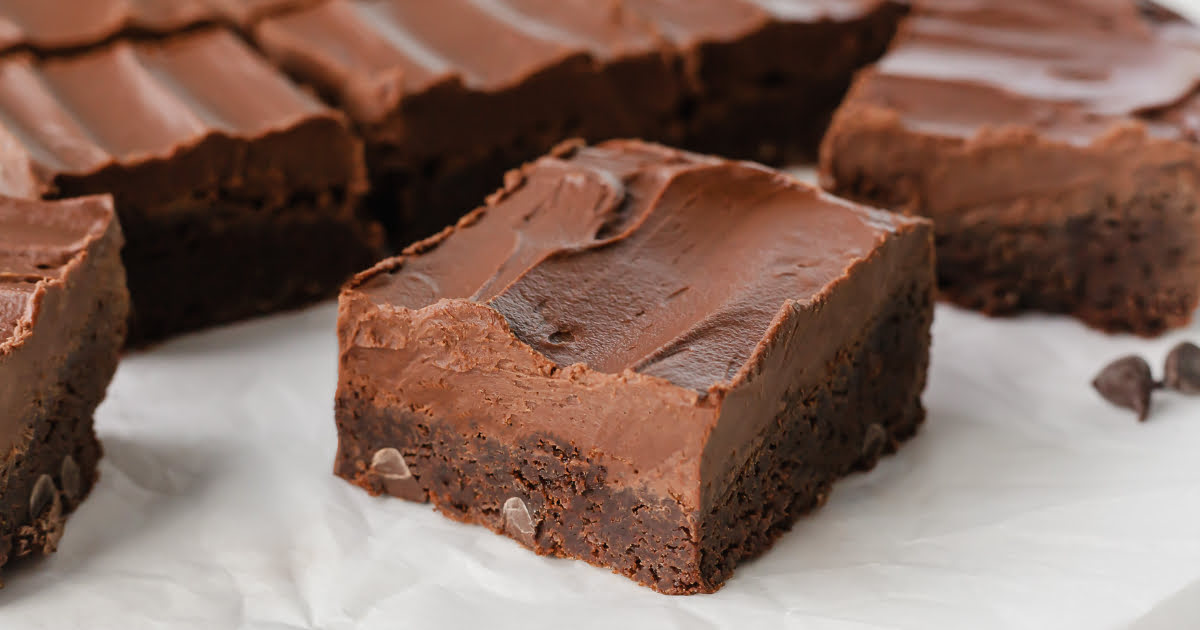

0 thoughts on “How To Store Fresh Pasta Overnight”